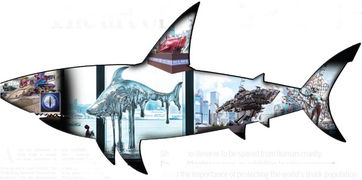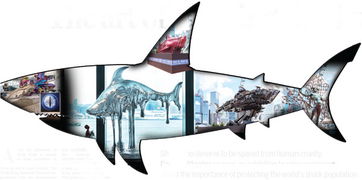Content:
Fishing, an ancient pastime that has stood the test of time, is an activity that requires patience, skill, and a deep understanding of the aquatic world. Whether you are a seasoned angler or a beginner looking to cast your line into the unknown, mastering the art of fishing can be a rewarding and enjoyable experience. In this article, we will delve into the world of fishing, offering you valuable tips and methods to help you become a successful fish hunter.
Understanding the Basics
Before you can start fishing, it's essential to understand the basics. This includes knowing the types of fish you want to catch, the equipment you'll need, and the best locations to fish. Here's a breakdown of the fundamental elements:
Types of Fish: Different fish species require different approaches. For instance, bass fishing might call for a different technique than fly fishing for trout. Research the species you're targeting to understand their habits and preferences.
Fishing Equipment: The equipment you'll need varies depending on the type of fishing you're doing. Basic gear includes a rod, reel, line, hooks, lures, and bait. More specialized equipment may be required for certain types of fishing, such as fly fishing rods or spinning reels.
Fishing Locations: The best places to fish depend on the species you're after. Public lakes, rivers, and streams are popular choices, but you might also consider private fishing clubs or charter boats for more exclusive experiences.
Choosing the Right Technique
Once you have the basics down, it's time to choose the right technique. Here are some common methods:
Bait Fishing: This involves using bait to attract fish. Live bait, such as worms or minnows, or artificial bait like plastic worms or jigs, can be effective. The key is to mimic the natural food sources of the fish you're targeting.
Lure Fishing: Lures are designed to mimic the movement of fish, insects, or other prey. They can be cast, trolled, or used with a variety of techniques. The type of lure you choose depends on the species and the conditions.

Fly Fishing: This method involves casting a fly rod with a weighted fly line and a light leader. The fly is designed to imitate insects or other aquatic life. Fly fishing requires a different technique and equipment but can be highly rewarding.
Spinning and Casting: Spinning rods and reels are versatile and great for beginners. They allow for a variety of retrieves and can be used with a wide range of lures and baits.
Mastering the Art of Casting
Casting is a fundamental skill in fishing. Here are some tips to improve your casting technique:
Practice: The more you cast, the better you'll become. Find a quiet spot to practice your casting technique without worrying about getting tangled or disturbing others.
Maintain a Balanced Rod: Keep your rod balanced and your wrist relaxed. This will help you cast with more accuracy and control.
Use the Power of Your Arm and Body: Instead of just using your arm, use your entire body to generate power. This will help you cast further and with more accuracy.
Learn the Different Casting Techniques: There are various casting techniques, such as the overhead cast, sidearm cast, and roll cast. Each has its benefits and is suitable for different situations.
Understanding Fish Behavior
To be a successful fish hunter, you need to understand the behavior of the fish you're targeting. Here are some key points:
Feeding Patterns: Fish often feed at specific times of the day, such as early morning or evening. Understanding these patterns can help you choose the best times to fish.
Water Temperature: Fish are sensitive to water temperature. They tend to move to cooler or warmer water depending on the season. Keep an eye on the water temperature to predict where the fish might be.
Cover and Structure: Fish often seek cover or structure to hide from predators. Look for areas with rocks, logs, or vegetation where fish might congregate.
Safety and Etiquette
Fishing is not just about catching fish; it's also about respecting the environment and other anglers. Here are some safety and etiquette tips:
Safety First: Always wear a life jacket if you're fishing from a boat. Be aware of your surroundings and the weather conditions.
Leave No Trace: Dispose of trash properly and respect the natural environment. Avoid disturbing wildlife and other anglers.
Fishing Etiquette: Follow local fishing regulations and be courteous to other anglers. If you're fishing from a public spot, be mindful of your space and noise level.
In conclusion, fishing is an art that can be mastered with practice, patience, and a deep understanding of the sport. By following these techniques and methods, you'll be well on your way to becoming a successful fish hunter. Whether you're after a trophy fish or simply enjoying the tranquility of the water, fishing offers a unique experience that can be cherished for a lifetime. Happy fishing!












